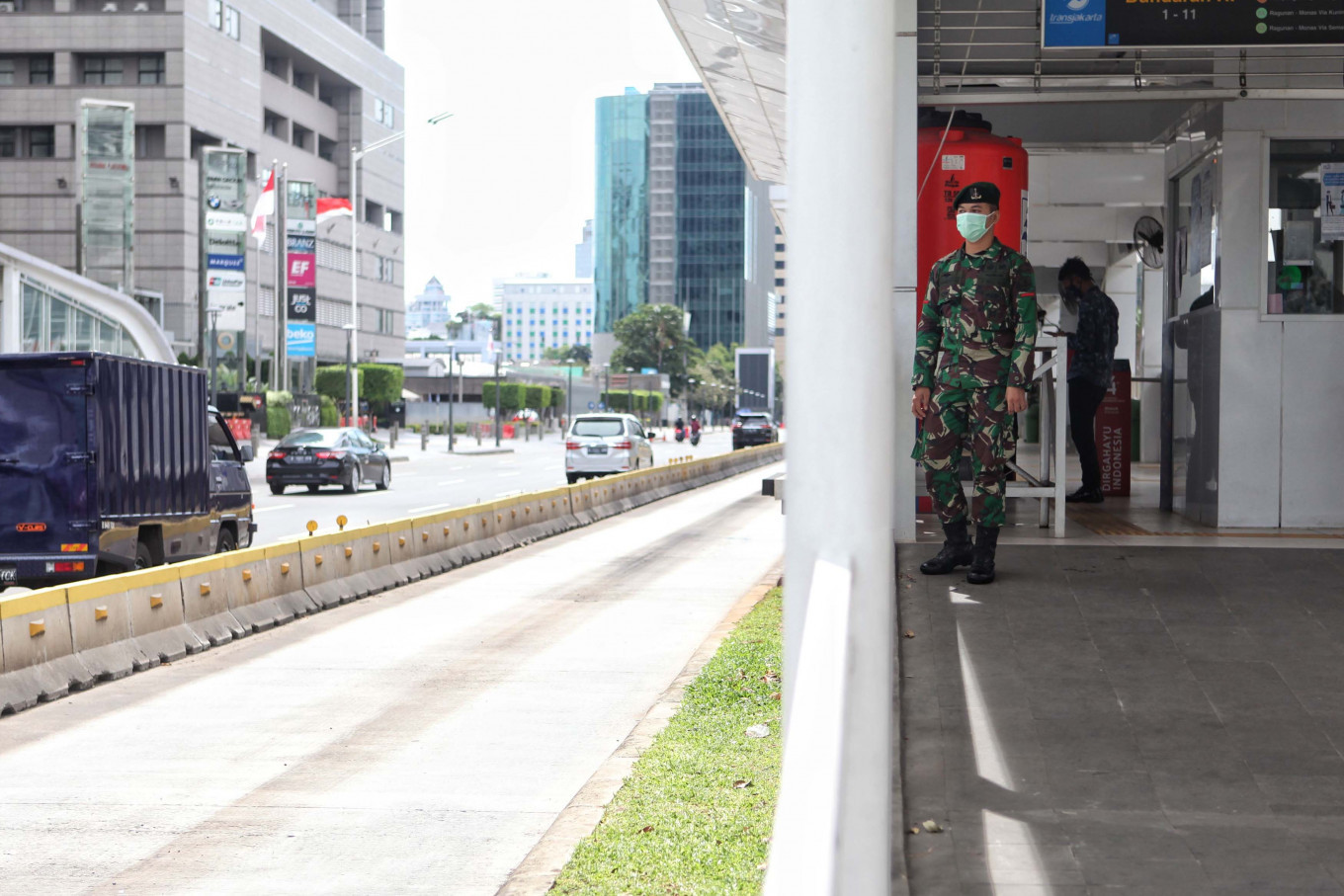
Back to old normal?
by Editorial BoardWhether cities and regencies are ready or not, the government is determined to lift large-scale social restrictions (PSBB) in the second half of this year, arguing that people, in order to survive, will have to learn to coexist with the coronavirus.
Jakarta Governor Anies Baswedan has hinted that the PSBB policy would not be extended after June 4, even though the numbers of cases and deaths remain high. The State-Owned Enterprises Ministry has instructed state-owned firms to prepare health protocols to enable employees to return to work in June.
The “new normal” or the inescapable return to daily routines after lifting the curbs, is worrisome, since the government and local administrations have hardly enforced the partial lockdown policy and stay-at-home order among residents. As far as preparations are concerned, many loopholes remain. The government has only issued health protocols for workplaces, commercial areas and industrial zones, with issues that have yet to be properly identified, let alone addressed.
A Transportation Ministry regulation on public transportation during the pandemic is still often violated. Aircraft on some flights are still more than half full, thereby exceeding the number of passengers allowed under the regulation. Lion Air Group has suspended all domestic flight operations until the end of this month, after many passengers failed to show an exit and entry permit (SIKM) prior to boarding, as required by a Jakarta administration regulation. Not to mention the overcrowded commuter trains in Greater Jakarta or Transjakarta bus services in the capital that, on regular days before the pandemic would carry up to 1 million passengers a day.
Despite calls from religious leaders and organizations, no proper health protocols have been established for places of worship and religious activities. Religious activities in West Java, South Sulawesi and a few other provinces have already become infection clusters. Without proper enforcement of physical distancing for every gathering, more cases can be expected, at least from last weekend, when congregational prayers were still found despite appeals against them.
The government should ensure as best it can that every citizen abides by the rules and constantly remains in the physical distancing environment, from leaving home to returning safely, particularly for those using public transportation. The consequences of this would include longer travel times due to the limited capacity of public transportation. This is why the government and local administration must prevent chaotic commutes and overcrowded train and bus stations that would become hot spots of virus infection.
President Joko “Jokowi” Widodo keeps talking about living in the new normal, but without sufficient preparation, people will only return to the old normal — to their crowded and unhealthy, and likely more risk-filled, lives. Like in any other critical time in the country, he has ordered the deployment of police and military personnel to ensure discipline in provinces with the highest cases and deaths. This sounds quite like the old times.
What the government and the people must learn is to implement health and safety protocols in our lives. This is our new reality, regardless of whether or not authorities are around. The new becomes “normal” when the protocols become a habit.
If you want to help in the fight against COVID-19, we have compiled an up-to-date list of community initiatives designed to aid medical workers and low-income people in this article. Link: [UPDATED] Anti-COVID-19 initiatives: Helping Indonesia fight the outbreak